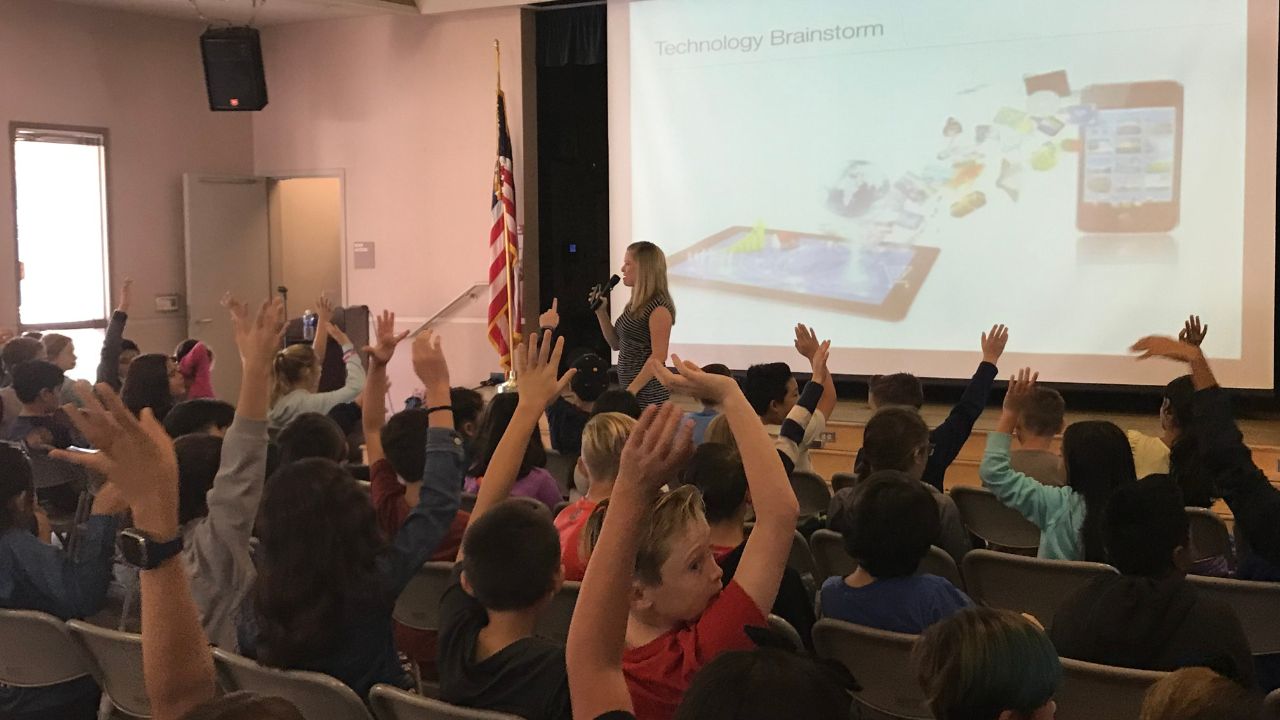My Teen Doesn’t Want to Talk—Now What? Tips to Reconnect

If you have a preteen or teen, you may have felt it already.
The shorter answers.
The closed bedroom door.
The sense that your child—who once told you everything—is now keeping you at arm’s length.
Or maybe it sounds more like this:
“Every time I bring it up, they shut down.”
For many parents, this shift feels personal. It can stir up fear, grief, or a quiet panic: Are we losing our connection? Did I do something wrong? What if they stop coming to me altogether?
Before you jump to worst-case conclusions, take a breath. Here’s the reassuring truth:
Your teen pulling away is not a sign of failure — it’s a sign of development.
Adolescence is designed to stretch the parent-child relationship, not break it. And while teens do need more space, they still need you — just in a different way.
The goal during these years isn’t constant closeness or control. It’s emotional availability without hovering, guidance without interrogation, and connection that feels safe rather than forced.
L...
Raising Kids Safely in the Age of AI

Artificial intelligence is now woven into nearly every part of our children’s world. It’s in their classrooms, their favorite apps, their search engines, the videos that populate their feeds, and even the ways they socialize. For kids and teens, AI doesn’t feel new or disruptive—it feels normal. But for parents, it can feel overwhelming to keep up with what this technology can do, what it might show them, and how it could shape their understanding of relationships, sexuality, safety, and self-image.
You don’t need to be an expert in AI to guide your child through this landscape. You just need to stay curious, connected, and open to the conversations that follow. Think of AI the same way you think about sex, porn, consent, or social media: our kids will learn about it from somewhere. The question is whether they learn about it from TikTok, YouTube, and Snapchat—or from you.
This guide brings together the best ideas from current research and child development experts and then layers on...
When Do Kids Have Sex, Marry, and Have Babies Today?

If you’re parenting a child or teen today, it can feel like the rules of growing up have completely changed—because in many ways, they have.
The ages at which people first have sex, get married, and become parents look very different than they did even a generation ago. And yet, many parents are still working from outdated assumptions about what’s “normal,” what’s “too early,” or what their child is supposed to be ready for at a certain age.
The research tells a clearer—and more nuanced—story.
Understanding these shifting timelines isn’t about encouraging kids to grow up faster. It’s about helping parents align conversations with reality, reduce fear-based messaging, and replace silence with steady, values-based guidance.
Here’s what the data actually shows.
What Research Tells Us About the Age of First Intercourse in the U.S.
When researchers talk about “age at first intercourse,” they’re typically referring to first vaginal-penile sex—not first sexual experience overall. Tha...
How to Use Thanksgiving Break to Truly Connect with Your Family

Thanksgiving has a way of slowing us down—just enough to notice the things we normally move too quickly to see. The way your child’s face lights up when they help mash the potatoes. The laughter around a full table. The quiet moment before everyone wakes up and the house fills with life.
For many families, the holiday season is chaotic, cozy, joyful, stressful… all at once. It’s a time that asks a lot from parents, both emotionally and logistically. But it also offers something powerful: a built-in opportunity to reconnect.
Between school, work, activities, and the everyday rush, it’s easy to slide into “transactional parenting”—managing schedules, reminding, correcting, directing. Thanksgiving break offers a window to shift back into relational parenting: slowing down, tuning in, and strengthening the connection that makes our kids feel safe, seen, and loved.
Here’s how you can use this holiday break to create meaningful moments with your kids—moments that last far longer than turk...
The Power of the Pause: Parenting Teens with More Calm and Connection

Guest Expert: Kelly Kelley, Conscious Parenting Coach
This article was written by Kelly Kelley, a certified Conscious Parenting Coach who specializes in helping parents navigate the complexities of raising teens with confidence, clarity, and connection. Through workshops, speaking engagements, and 1:1 coaching, Kelly supports families in building stronger relationships and more peaceful homes.
We’re honored to feature her as a guest blogger for The Talk Institute.
Parenting teens can feel like whiplash — one moment they’re independent and composed, and the next they’re overwhelmed, emotional, or slamming a door. Most of us want to fix the problem, calm the intensity, or bring the situation back under control as quickly as possible.
But here’s the surprising truth:
Our calm — not our solutions — is what changes the moment.
Most conflicts escalate not because of our teens, but because we escalate. When we
learn to pause before reacting, everything softens. We shift the dynamic from...
When Your Teen Gets Ghosted by a Friend: How to Help

When Your Teen Gets Ghosted: Why It Happens and How to Help Them Heal
Picture this: your teen comes home from school, drops their backpack, and slumps onto the couch. Something is off. You ask what’s wrong, and after a long pause, they mutter, “I think my friend is ignoring me. They just stopped talking to me — like I don’t exist anymore.”
That sinking feeling in your chest? It’s heartbreak by proxy. Your child has just been ghosted.
Ghosting isn’t just a dating buzzword. It’s what happens when someone — friend, crush, even a group — suddenly cuts off contact without explanation. No texts, no callbacks, no “hey, I need space.” Just silence. And for teenagers, who are already navigating the emotional rollercoaster of adolescence, it can sting more than we realize.
Why Do Teens Ghost Each Other?
From the outside, ghosting looks cruel. Why not just be honest? But for many teens, ghosting isn’t about malice — it’s about avoidance. Conversations that involve uncomfortable truths tak...
Why Shame Fails in Sex Education

Why Shame Has No Place in Sex Education: Fear Isn’t the Answer
Sex is everywhere these days. It’s in our shows, music, and daily conversations—even if we don’t always realize it. Yet despite this cultural presence, many of us still wrestle with shame, confusion, and misinformation around sexuality. The truth is, most of us didn’t grow up with honest, supportive sex education. What we received was more about control than care, more about fear than trust. Sadly, many young people today are facing even fewer opportunities to learn, as schools across the country scale back or erase meaningful sex education.
It’s time we say this out loud: shame is not a good tactic in sex education. It doesn’t prevent harm. It doesn’t protect kids. It leaves scars.
How Fear and Shame Shaped Sex Education
Think back to your own sex education—if you had any at all. Chances are it was awkward, limited, and full of warnings. For some, it was framed entirely around what not to do: don’t have sex before m...
The Secret That Makes “The Talk” Easier

Why the Power of Community Makes All the Difference in THE Talk
Have a child between 9–12? You’re in one of the most important windows of their life—when peers, YouTube, and social media are shaping their ideas about body changes, relationships, and sex. The problem? Most of what they’re learning is incomplete, inaccurate, or harmful. The good news: with the right tools and community, you can be the voice they trust most.
If there’s one thing I know for sure after years of teaching families about sexual health, it’s this: no parent should have to navigate THE Talk alone.
Sure, you can read the books, scroll through the blogs, and maybe even take a stab at a few awkward conversations—but there’s something truly special that happens when you bring parents, kids, and a skilled educator together in the same room. That’s the heartbeat of The Talk Institute.
Yes, we teach kids the facts. Yes, we make those tricky conversations feel less scary for parents. But the real secret sauce? Commu...
The Talk Show: Using TV to Chat About 'Tricky Subjects' With Your Kids

Almost every home in the U.S. has a TV — it’s just part of our daily lives. We all have favorite shows, maybe even a few. And guess what? TV shows are packed with storylines about sexuality, relationships, and health topics — from sex and pregnancy to drugs and alcohol. Watching TV with your kids can be a great way to open the door for honest conversations about these topics.
You can use what you see on screen to ask questions and get a sense of what your child thinks and how they might act if they were in the same situation. It’s also a chance to share your values, expectations, and hopes for them.
Step 1: Get to Know What They’re Watching
Start by finding out what shows your kids are into and pick a time to watch together when you’re not distracted. Instead of yes/no questions, ask open-ended ones that encourage a real conversation.
Pro tip: Before choosing what to watch, check out resources like Common Sense Media. They provide honest reviews of TV shows and movies, including co...
Breakups Are Tough! Here’s How Parents Can Help

Breakups Are Tough! Here’s How Parents Can Actually Help
Let’s be honest: watching your kid go through a breakup is brutal. It hits you right in the gut—especially if they’re sobbing into their cereal or hiding under a blanket with zero interest in life. And if it’s their first big heartbreak? Oof. There’s no handbook for this.
Teen breakups aren’t like the ones we had back in the day. These kids are texting, snapping, and FaceTiming non-stop when they're together. So when the relationship ends, it’s not just the person they’re losing—it’s the entire daily rhythm. Add social media to the mix and suddenly it’s not a private heartache—it’s a group chat postmortem. Their friends know, their mutuals know, maybe even Grandma knows if she’s on Facebook.
It’s intense. Teens feel everything at full volume. The highs of a relationship are super high, and the lows? They’re devastating. And as parents, our instincts can lead us in the wrong direction.
So what do we usually do wrong?
A lot of...

